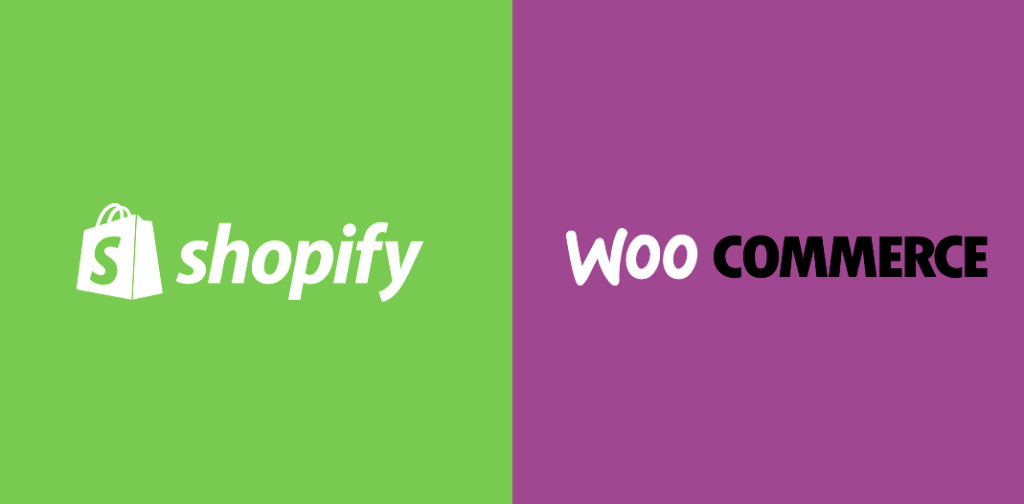When starting an online store, one of the biggest decisions is choosing the right platform. The most popular choices are Shopify and WooCommerce. Both platforms have their strengths and weaknesses, making the choice not so straightforward.
That’s why we at Hype Studio have decided to put together this comprehensive guide. Here, we compare Shopify and WooCommerce, highlighting their pros, cons, and best use-cases. We aim to help you make an informed decision about the platform that best fits your e-commerce needs.
Understanding Shopify and WooCommerce
Before we delve into the comparison, it’s essential to understand what each platform offers.
Shopify is a fully hosted e-commerce platform that enables you to start, grow, and manage a business. It’s an all-in-one solution that packs everything you need: from creating your online store to managing your products, inventory, payments, and shipping.
WooCommerce, on the other hand, is a flexible, open-source e-commerce solution built on WordPress. It provides complete control over your store, from the design to the functionality. If you’re already familiar with WordPress, getting started with WooCommerce becomes significantly easier.
The Pros and Cons of Shopify and WooCommerce
Shopify

Shopify has gained popularity due to its user-friendly interface and all-inclusive features. Here are some of the advantages and disadvantages you should consider:
Advantages of Shopify:
- Ease of Use: Shopify’s intuitive interface makes it easy for anyone to set up a store, even without any technical knowledge.
- Fully Hosted Solution: With Shopify handling all technical aspects, you can focus on managing your business instead of worrying about hosting or security.
- Excellent Performance: Shopify’s robust infrastructure provides fast load times, ensuring your customers have a seamless shopping experience.
- 24/7 Customer Support: With round-the-clock support, you can solve any issues promptly, reducing downtime and improving customer satisfaction.
- In-built Payment Gateway: Shopify’s built-in payment gateway, Shopify Payments, simplifies transactions and eliminates the need for third-party integrations.
Disadvantages of Shopify:
- Transaction Fees: Unless you use Shopify Payments, you’ll incur additional transaction fees on every sale.
- Limited Customization Options: Shopify uses its own coding language, Liquid, which can limit your store’s customization unless you’re proficient in it.
- Higher Costs for Advanced Features: Accessing advanced e-commerce features requires upgrading to one of Shopify’s more expensive plans.
- Charges for Add-ons and Integrations: While Shopify’s App Store offers a range of plugins and add-ons, many come with additional costs.
WooCommerce

As an open-source plugin for WordPress, WooCommerce provides extensive customization capabilities and seamless integration with the world’s most popular content management system. However, it also comes with its challenges. Here are the key pros and cons:
Advantages of WooCommerce:
- Open Source and Highly Customizable: WooCommerce’s open-source nature allows you to modify every aspect of your store to create a unique online experience.
- WordPress Integration: If you already have a WordPress site, integrating WooCommerce is a straightforward process.
- Extensive Plugin Ecosystem: You can leverage WordPress’s vast array of plugins to add diverse functionalities to your store.
- No Transaction Fees: WooCommerce itself doesn’t charge transaction fees, so you only have to consider the costs imposed by your chosen payment gateway.
Disadvantages of WooCommerce:
- Self-Hosting Required: Unlike Shopify, WooCommerce isn’t a hosted solution. This means you’re responsible for hosting, security, and managing updates.
- Complex Setup: Setting up a WooCommerce store requires more technical knowledge compared to Shopify, which might necessitate the help of a developer.
- Limited Support: WooCommerce’s support is largely community-based and can’t match the direct, 24/7 support offered by Shopify.
- Performance Dependent on Hosting: Your WooCommerce store’s performance is heavily dependent on the quality of your web hosting service.
Which Platform Should You Choose?

When it comes to choosing between Shopify and WooCommerce, there’s no one-size-fits-all answer. The choice depends on your specific needs, technical expertise, and business objectives. Let’s outline some scenarios to help you make an informed decision:
Choose Shopify if:
- You’re looking for an all-in-one solution that requires minimal technical knowledge.
- You prefer a hands-off approach when it comes to the technical aspects of running an online store.
- You need round-the-clock support to troubleshoot any issues that might arise.
- You don’t need advanced customization and are satisfied with the customization options provided by the platform and its theme ecosystem.
Choose WooCommerce if:
- You want full control over every aspect of your online store, including its design and functionality.
- You’re already comfortable with WordPress and prefer a platform that integrates seamlessly with it.
- You need specific functionalities that are only available through the extensive WordPress plugin ecosystem.
- You’re comfortable handling the technical aspects of running an online store or have a reliable developer at hand.
No matter which platform you choose, remember that a successful online store also depends on effective digital marketing. This includes SEO, social media marketing, content marketing, and email marketing. At Hype Studio, we offer a range of services that can help you successfully promote your online store and reach your target audience.
Feature and Pricing Comparison

Shopify Features and Pricing:
Shopify offers a range of features to make e-commerce management as smooth as possible. These include unlimited product listings, multiple sales channel integrations, discount code creation, abandoned cart recovery, and more. Plus, it has a reliable CDN for speedy content delivery and a built-in blog feature to enhance your content marketing efforts.
In terms of pricing, Shopify offers three main plans:
- Basic Shopify: Priced at $29 per month, it covers all the basics for starting a new business.
- Shopify: At $79 per month, it provides additional features for growing businesses.
- Advanced Shopify: Priced at $299 per month, this plan offers advanced features for scaling your business.
WooCommerce Features and Pricing:
Being a WordPress plugin, WooCommerce allows for seamless content integration and high-level customization. It offers features like product variations, inventory management, shipping rate calculations, coupon codes, and more. Plus, with access to thousands of WordPress plugins, you can add almost any functionality you need.
As for pricing, the WooCommerce plugin is free. However, you’ll need to consider additional costs such as:
- Hosting: Costs can range from $3 to $100+ per month, depending on your provider and plan.
- Domain Name: This usually costs around $10-$15 per year.
- Themes and Plugins: While many are free, premium options can range from $20 to $100+.
- Developer Fees: If you need customization beyond your technical expertise, you might need to hire a developer.
Whether you choose Shopify or WooCommerce, creating an engaging, user-friendly, and optimized website is crucial. Here at Hype Studio, we offer web design and development services that can help you design a website that not only looks good but performs well too.
User Experience: Shopify vs WooCommerce
User experience is paramount in e-commerce, influencing everything from conversion rates to customer loyalty. Both Shopify and WooCommerce have their strengths in this area.
Shopify User Experience:
Shopify’s user-friendly design and straightforward navigation make it easy for anyone to create and manage an online store. Its intuitive interface, combined with powerful tools and 24/7 support, make it an excellent choice for those seeking simplicity and efficiency.
WooCommerce User Experience:
WooCommerce offers a high level of customization that can lead to a unique and tailored user experience. As a WordPress plugin, it allows seamless integration with your existing WordPress website, giving you the power to create an online store that matches your brand identity perfectly. However, this flexibility may require a steeper learning curve or developer assistance.
Choosing the right e-commerce platform for your business is a crucial decision that can significantly impact your online success. Both Shopify and WooCommerce have their advantages and are better suited to different scenarios. Assess your needs, technical skills, budget, and long-term goals before making a decision.
SEO Considerations: Shopify vs WooCommerce
Search engine optimization (SEO) is critical for any online business. It helps your store get discovered in search engine results, driving organic traffic and potential customers. Both Shopify and WooCommerce have their own approach to SEO.
Shopify SEO:
Shopify includes built-in SEO features, such as editable title tags, meta descriptions, URLs, and image alt texts. It also automatically generates a sitemap.xml for your store, which helps search engines understand your site structure and index it effectively. Additionally, it has a range of SEO-focused apps available in its marketplace to enhance your optimization efforts.
WooCommerce SEO:
WooCommerce, as a WordPress plugin, benefits greatly from the SEO-friendliness of WordPress itself. It allows for complete control over every SEO detail, from URLs to meta descriptions. With WordPress’ extensive selection of SEO plugins, such as Yoast SEO, you can further optimize your store. However, the level of control also means you may need a bit more technical knowledge to fully leverage WooCommerce’s SEO potential.
If you need assistance with SEO for your e-commerce store, Hype Studio offers comprehensive SEO services to help you rank higher in search engine results and drive more traffic to your site.
A Look at the E-commerce Landscape
While Shopify and WooCommerce are undoubtedly popular choices in the world of e-commerce, several other platforms can also cater to your online business needs. Let’s quickly overview a few of them.
Magento:
Magento is a powerful and flexible e-commerce platform that’s particularly well-suited to medium-sized to large businesses. It offers extensive customization options and scalability but typically requires a higher degree of technical expertise to use effectively.
BigCommerce:
BigCommerce is another comprehensive solution, providing a range of built-in features and functionalities that can help businesses of all sizes. It’s user-friendly and requires less technical knowledge compared to Magento, but it might be a bit costly for small businesses.
FAQ
Frequently Asked Questions
1. Can I switch from Shopify to WooCommerce or vice versa?
Yes, you can switch platforms, but it can be a complex process that may require technical expertise or professional assistance to ensure no data is lost.
2. Can I use both Shopify and WooCommerce?
Technically, you could use both platforms for different parts of your business. However, this can lead to complications in managing your operations and could confuse customers.
3. Which platform is better for SEO?
Both platforms can be effectively optimized for search engines. Shopify has built-in SEO features, while WooCommerce, being a WordPress plugin, benefits from WordPress’ SEO-friendliness and a wide array of SEO plugins.
Take Your Online Business to the Next Level with Hype Studio
Running a successful online store involves more than just choosing the right platform—it’s about creating an appealing and intuitive user experience, optimizing for search engines, and implementing effective digital marketing strategies. That’s where Hype Studio can make a difference.
Whether you’re looking for help with web design and development, search engine optimisation, digital marketing, or need assistance with platform selection and setup, our experienced team is here to help. We can guide you through the entire process, ensuring that your online store not only looks fantastic but also reaches your target audience and converts visitors into loyal customers.
Don’t leave your online success to chance. Contact us today to find out how Hype Studio can elevate your online store and help you achieve your business goals.



